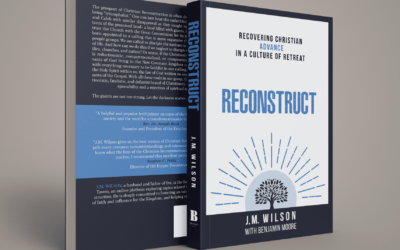The twentieth and twenty-first centuries could be characterized as an era of liberation movements. Whether it be women’s suffrage, civil rights, or more contemporarily, “LGBT” activism, many groups have emerged seeking freedom from discrimination and oppression against their ethnicity, gender, or purported sexual orientation. Further, there is coinciding interest and dialogue among scholars of various schools regarding the origins of these groups and whether lessons gleaned from them might enhance society today.
Related to the promulgation of woman’s rights, Old Testament law, and specifically Deuteronomy 22:13-29, has been called into question. Some have accused the biblical law code of suppressing the freedom and choices that women should have had in ancient Israel. Furthermore, the ancient Israelite culture seems to be dominated by males, and Israel’s civil code may appear at first glance to provide privileges for them at the expense of women. This impression of Old Testament law rarely comes from diligent study. When one considers the context, language, and cultural setting of Israel’s law, the perspective begins to change. Far from being exploitative to women, the laws concerning sexual immorality in Deuteronomy 22:13-29 were intended to protect women from abuse, public shame, and marital neglect, and cannot be interpreted as promulgating male supremacy or female oppression.
When it comes to contemporary scholarly analysis of whether Deuteronomy is pro-women, there are mixed reviews. On the one hand, there are those who are critical of Israel’s civil code, and see it as political oppression of women while also fostering a male dominant culture. Herold Washington sees Deuteronomy as merely a law code that “functions as a discourse of male power” and does nothing to deter or punish violence against women.1 From Ester Fuchs’ perspective, Israel’s laws concerning sexual immorality “promotes a male-supremacist social and cognitive system.”2 Michael Prior argues that “the Bible, commonly looked to as the supreme source-book of liberation, can function as a charter for oppression.”3
On the other hand, conservative scholars approach Deuteronomy from an entirely different perspective. Their analysis is that the laws in Deut 22:13-29 actually valued and protected women while the rest of the Ancient Near East did not. Sandra Richter, who has worked thoroughly on this issue concludes that “within its societal context, the laws of Deuteronomy did indeed protect women, often more effectively than surrounding law codes, and perhaps more effectively than modern legal systems.”4 Kathleen Nielson has also made important contributions to this issue. In her article, she asserts, “A focus on Deuteronomy 22:13-30 shows that women are not only held equally responsible for sexual sin but also carefully protected, especially in cases of mistreatment and sexual abuse.”5 In the first of his three-volume work, The Institutes of Biblical Law, R.J. Rushdoony makes the following analysis on Deut 22:13-29, “In marriage, the woman was protected from abuse and slander by her husband… She was legally guaranteed at all times her food, clothing, and ‘her duty of marriage,’ i.e., sexual intercourse, within her husband’s home.”6
Exegetical Insights
As we examine the issue further, we find broad biblical support for the protections of women. As an example, consider Deuteronomy 22.
Deuteronomy 22:13-29 is arranged as a chiasm.7
Figure 1: The Chiastic Structure of Deuteronomy 22:13-29
Crimes involving a married woman, vv. 13-22
A vv. 13-19, the accused bride, innocent, damages due
B vv. 20-21, the accused bride, guilty, executed by her community
C v. 22, a consensual tryst between a man and a married woman, both executed by the community
Crimes involving an unmarried woman, vv. 23-29
C’ vv. 23-24, consensual tryst between a man and a betrothed woman, both executed by the community
B’ vv. 25-27, the accused man, guilty of rape, executed
A’ vv. 28-29, consensual tryst between an unmarried man and unbetrothed/unmarried virgin woman. Man pays dowry, man must marry woman so as not to dishonor her.
Scenario A (Deut 22:13-19) protects a bride by incentivizing the groom not to accuse his new wife of infidelity falsely. In this law, we have a case where a bridegroom on his wedding night “goes into her[his bride] and then hates her and accuses her of misconduct and brings a bad name upon her” claiming not to have found evidence of virginity (vv.13-14). It is unclear why the man hates her. Presumably, the two were not intimately compatible with each other, resulting in the man’s dissatisfaction with her sexual conduct. It is then the responsibility of the parents to prove the innocence of their daughter. Evidence is then presented in the form of the wedding bedsheets being brought before the elders of the city so that they may examine the blood from the virgin’s broken hymen. If the evidence is present, the man is punished for his false accusation. He is whipped, fined 100 shekels to be paid to his bride’s father, and he may not divorce her (vv.18-19).
Old Testament law is designed to deter slander, false accusations, and an easy way out of a dissatisfied marriage union. Bruce Wells describes the fairness of this penalty this way: “If his pursuit of full measures turns out to be based on false charges, it logically follows, based on the law of false accusation, that the husband would be punished in equal measure. Thus, his punishments would still entail public humiliation, financial penalties, and the obligation to provide for the woman’s permanent support.”8 We see the protection of women in this scenario in the fact that the man who wishes to slander and abandon his wife has much to lose if he is proven wrong.
Some have misinterpreted C’ (vv. 23-24) as male supremacy because the case allegedly punishes a victim of rape. However, C’ would have to fall into the category of consensual sexual relations (in this case, adultery) for two reasons. First, the crime is against the husband of the woman, not the woman herself (v.24). If this were a case of rape, the rationale for the penalty of this crime would have more reason to mention the woman as the victim instead of her husband (i.e. “because he violated his neighbor’s wife”).
Second, the verb in question here is עִנָּה, which often gives the impression of “rape” (e.g., Gen 34:2; Judges 19:24; 20:5; 2 Sam 13:22). However, the semantic domain of this term is very broad. It can refer to afflicting oneself in Sabbath day worship (Lev 16:29, 31; 23:27, 29, 32), God’s acts of humbling his people (Deut 8:2, 16), or being bound as a prisoner (Deut 26:6; Judges 16:5, 6) among other uses. In Deut 22:24, the verb is in the piel stem which can be defined as to “humble a woman by cohabiting.”9 The idea is to lower a woman’s social status by living with her prior to marriage or having unlawful sexual relations with her. By doing so, an unmarried woman would become unqualified for marriage and a married woman would be labeled an adulterer. The sense of עִנָּה in no way implies “rape.” This was a consensual act between a man and a betrothed woman.
In the next scenario (B’ vv. 25-27) there is a shift to a non-consensual sexual situation. A new verb is introduced here, חָזַק, “to seize.” The same root word is used to describe the rape of Tamar (2 Sam 13:14) and the Levite’s concubine (Judges 19:25:29).10 By introducing this verb, Moses is conveying the idea of consent; something the woman in this scenario did not do.11 The assumption of innocence is reserved for the woman. She is not culpable of the crime unless proven guilty. Since there is no one around to witness the crime, she must report it. If the man is found guilty, he must pay with his life. The rationale behind this penalty is that “this case is like that of a man attacking and murdering his neighbor, because he met her in the open country, and though the betrothed young woman cried for help there was no one to rescue her” (vv.26-27).
Arguably, this law protects and values women more than the legal codes of our modern age. Not one of the fifty states in America utilizes the death penalty for convicted rapists and the sentences that are given range from life in prison to as little as one year in jail.12 It is plain that a potential rapist had far more to lose in ancient Israel than they would under current American law.
The final scenario (A’ vv. 28-29) is another case of consensual sexual relations. Although both parties in this case are guilty of fornication, this law is still designed to protect the woman from economic insecurities that the man has irresponsibly subjected her to.13 It requires that damages be paid to the girl’s father.
If a man meets a virgin who is not betrothed, and seizes her and lies with her, and they are found, then the man who lay with her shall give to the father of the young woman fifty shekels of silver, and she shall be his wife, because he has violated her. He may not divorce her all his days.
Some would immediately notice the verb “seizes” and assume this is a rape case like in B’, giving the critics more fuel to read this as a law requiring a rape victim to marry her rapist. However, the verb here is תָּפַשׂ not חָזַק as we saw in Deut 22:25-27. תָּפַשׂ does not indicate force. This is confirmed by a parallel passage that prescribes the same law.
If a man suduces [פָּתָה] a virgin who is not betrothed and lies with her, he shall give the bride-price for her and make her his wife (Exod 22:16).
A Hebrew and English Lexicon of the Old Testament designates פָּתָה to mean “persuade,” “seduce,” or “entice.”14 If Exodus 22:16 is not a case of rape, then neither is Deut 22:28-29 because they are the same law. The NIV translation infamously translates תָּפַשׂ as “rape,” which is an unfortunate translation and causes the parallel passages to conflict with each other.
The penalty is that the man pays fifty shekels of silver to the girl’s father, he has to marry her, and divorce is not an option. From the man’s perspective, a one-night stand could potentially turn into a substantial fine plus the obligations of matrimony. This ensured that a young girl who participated in premarital sex would not be cast aside to fend for herself after being used by the local Don Giovanni. Deuteronomy by no means requires a girl to marry her rapist. It instead, by unparalleled measures, protects and values women.
Ancient Near East (ANE) Alternatives
The same cannot be said of Israel’s contemporaries. When examining the laws of the surrounding nations, Deuteronomy 22:13-29 appears to be a response to the oppression of women that occurred under other ancient law codes. For example, in Mesopotamia, a girl was required to marry her rapist. If that wasn’t bad enough, there also was “revenge rape” where the husband of a rape victim was allowed to rape the perpetrator’s wife.15 This was the way the culture rehabilitated the honor that was lost to the victim’s family because of the rape; quite the contrast to the Deuteronomic concern and compassion for the innocent.
By other ANE legal standards, the penalties for sexual promiscuity did seem to favor men. Other ANE legal codes required the death penalty for the female but were ambiguous regarding the male’s punishment. Jonathan R. Ziskind paints this picture for us well.
In the laws of Ur-Nammu, if a wife initiated an adulterous relationship, only she was put to death. We are not told the consequences if the man was the initiator. The law in Eshnunna was the only one that clearly provides for the execution of the woman, without any mention of the fate of the man. In the Code of Hammurabi both the man and the woman were to be put to death, but there is a pardon clause: “If the husband spares his wife, the king will spare his subject.” In Hittite law, the woman was put to death if the adultery took place in her house. There is no mention of the fate of the man. The law goes on to state in a fashion similar to Hammurabi’s that if the adulterers are brought before the king, he will spare the man’s life if the husband will spare his wife. The Middle Assyrian laws call for the death of both of them but only when the adultery took place in the lover’s house. Otherwise, the matter was left to the discretion of the husband. If the act occurred “in an inn or in the street” with the man knowing she was another man’s wife, the man was treated the same way the husband wished to treat his wife. Thus, the death penalty for both was a possibility, not a probability. If the matter came before the king or a court, there was the possibility of [a] pardon. The man was killed only if the husband killed his wife.16
In comparison, the laws of Deut 22:13-29 showed fairness, equality, and a concern for the innocent that the other ANE countries lacked. Thus, we are reminded of Moses’ prediction that the nations would hear the wisdom of God’s law and say, “Surely this great nation is a wise and understanding people.’ For what great nation is there that has a god so near to it as the Lord our God is to us, whenever we call upon him? And what great nation is there, that has statutes and rules so righteous as all this law that I set before you today?” (Exod 4:6-8).
Individual rights?
As impressive as Israel’s civil code was regarding its protection of women, still some identify these laws as patriarchal and therefore unjust. Unlike our modern times where individuals freely choose their sexual partners, “The women of ancient Israel lacked the power of ‘sexual consent,’ which resided in the father and then the husband.”17 One author describes Israel’s culture this way: “Women did not constitute autonomous entities before the law in biblical Israel, not to mention the ancient world at large (in fact, neither exactly did men, as we will see). As a result, women possessed, for lack of a better term, few if any ‘rights.’”18 These observations are not incorrect. The modern concept of individual rights would have been foreign to the ancient world. It was the household that constituted a legal entity, not solely an individual.
However, Israel’s patriarchal system was not entirely different from the Western legal system. In today’s society, a minor is under the control and protection of their parents or legal guardians. They cannot legally choose their sexual partners until they reach a legal age of consent. This is similar to an Israelite virgin, only her readiness for a marriage union was left to the household to decide rather than the state. Regardless of one’s partiality toward democracy or patriarchy, it must be conceded that Israel’s legal system was one that valued the “well-being of its female citizens, has empowered them with a voice in the courts (be these private or public tribunals), investigates ‘consent,’ and bases its decisions upon civic authority and rational proof.”19
Is Deut 22:13-29 for today?
What does this law mean for the people of God today and, more importantly, how does it relate to Christ? It has become fashionable to emphasize the discontinuities between the Old and New Testaments. If an OT law is too difficult to understand or is far too disconnected from modern culture, we tend to throw it in the category of that-doesn’t-apply-today. However, the relevance of Deut 22:13-29 in today’s world becomes clear when one considers how it relates to the character of Christ.
Operating under the hermeneutical principle that Jesus is the key to unlocking the entire OT (Luke 24:44), we can draw a connection between any OT passage and any of the offices of Christ (i.e., prophet, priest, and king). Deut 22:13-29 pertains to justice in society regarding sexual crimes, so we can make the link directly to Christ’s governance as king. Jesus has been given universal authority over all creation (Matt 28:18). He is presently reigning as king (Eph 1:20-23), and will do so until all his enemies are subdued (1 Cor 15:25). His rule and reign are characterized by justice, righteousness, and peace (Isa 9:6). As king “He shall judge between many peoples, and shall decide disputes for strong nations far away” (Mic 4:3). Deut 22:13-29 is relevant today because Christ is king and he rules with righteousness and justice; two concepts that cannot be defined apart from the law of God. Greg Bahnsen puts it well:
The Ultimate King in civil government is Christ, and all rulers of the nations derive their authority from Him; hence all magistrates are subject to Christ’s word, even Christ’s confirmation of every bit of the law (Matt. 5:17 f.). National leaders have no exemption from the law of God just as they have no escape from the universal Lordship of Christ… If the Kings in the Older Testament Israel were responsible to God’s law because of the “Theocracy,” then also magistrates today are responsible to God’s law because of the “Christocracy.”20
Since Deut 22:13-29 is in the realm of civil life, its application for today would be for modern civil governments. Legislatures should work toward writing bills that would protect women according to the wisdom of Deut 22:13-29.
Conclusion
Is Deuteronomy 22:13-29 pro-women? After considering Israel’s cultural setting, examining the original Hebrew terms, and placing these laws in context, the Deuteronomic law pertaining to sexual crimes provided protection for women that the surrounding nations did not match, and arguably, neither does today’s legal system. It protected females from sexual assault, public humiliation, and economic instability. The modern world would do well to investigate the wisdom of Israel’s civil code. There is much work to be done on its application. What is perhaps the largest challenge is extracting the general equity of the law from Israel’s unique culture and temporal covenant administration.
________________________
Footnotes
- Herold Washington, “‘Lest He Die in Battle and Another Man Take Her’: Violence and the Construction of Gender in the Laws of Deuteronomy 20-22,” in Gender and Law in the Hebrew Bible and the Ancient Near East, Ed. Victor Matthews et al., JSOTSup 262 (Sheffield: Sheffield Academic, 1998). 213. ↩︎
- Ester Fuchs, Sexual Politics in the Biblical Narrative: Reading the Hebrew Bible as a Woman, JSOTSup 310 (Sheffield: Sheffield Academic, 2000), 12, 34. ↩︎
- Michael Prior, “The Bible as Instrument of Oppression,” Scripture Bulletin 25, no. 1 (January 1995): 2. ↩︎
- Sandra L. Richter, “Rape in Israel’s World … and Ours: A Study of Deuteronomy 22:23–2,” Journal of the Evangelical Theological Society 64, no. 1 (March 2021): 59–76. ↩︎
- Kathleen B. Nielsen, “Women, Sex, and a Question of Double Standards,” Unio Cum Christo 5, no. 2 (October 2019): 67–79. ↩︎
- Rousas John Rushdoony, The Institutes of Biblical Law. Vol 1. The United States of America: The Presbyterian and Reformed Publishing Company, 1973. 397. ↩︎
- Gordon McConville, Deuteronomy (Leicester: Apollos; Downers Grove, IL: InterVarsity, 2002), 336. ↩︎
- Bruce Wells, “Sex, Lies, and Virginal Rape: The Slandered Bride and False Accusation in Deuteronomy,” Journal of Biblical Literature 124, no. 1 (Spr 2005): 71–72. ↩︎
- Francis Brown et al., A Hebrew and English Lexicon of the Old Testament (Clarendon, 1979), 776. ↩︎
- Richter, 66 ↩︎
- Ibid. ↩︎
- Office of Legislative Research, Statutory Rape Laws by State, Sandra Norman-Eady, Peter Martino, and Christopher Reinhart, 2003-R-0376, Hartford, CT: Connecticut General Assembly, 2003. www.cga.ct.gov (accessed March 26, 2022). ↩︎
- Richter, 67. ↩︎
- Brown, 834. ↩︎
- Richter, 71. ↩︎
- Jonathan R. Ziskind, “The Treatment of Women in Deuteronomy: Moral Absolutism and Practicality,” Jewish Bible Quarterly 27, no. 4 (October 1999): 232. ↩︎
- Tikva Fiymer-Kensky, Reading the Women of the Bible (New York: Sehoeken Books, 2002), l79-83. ↩︎
- Robert S. Kawashima, “Could a Woman Say ‘No’ in Biblical Israel?: On the Genealogy of Legal Status in Biblical Law and Literature,” AJS Review 35, no. 1 (April 2011): 2. Kawashima is not criticizing the law. He is merely making observations of it. In the same article, he helps the reader translate the ancient customs of Israel to our modern ones. ↩︎
- Richter, 74-75. ↩︎
- Greg L. Bahnsen, Theonomy in Christian Ethics, (Nacogdoches, TX: Covenant Media Press, 2002), 415-16. ↩︎





0 Comments